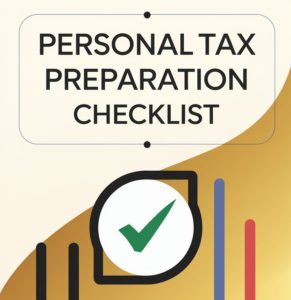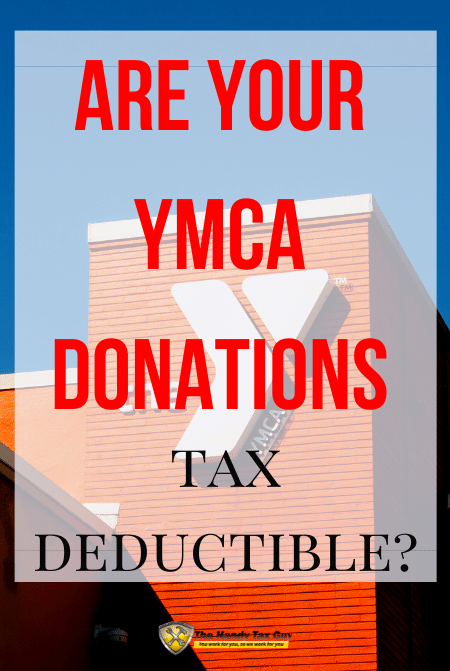You may be wondering, Is the YMCA a tax-exempt organization? Can I donate to it and can I use my donations as a tax write-off?
Short answer, yes!
The YMCA is one of the leading charitable organizations in the United States. For more than 150 years, The Y has worked to improve the lives of its members.
In order to help the community stay active and healthy, this organization provides exercise facilities, pools, and gyms. It also provides child, family services and job placement services.
Today I will take you through everything you need to know about the YMCA Tax-Exempt Status, how to donate to the organization and how it will affect your taxes.
THIS POST MAY CONTAIN AFFILIATE LINKS. PLEASE READ MY DISCLOSURE FOR MORE INFO. This means if you click on any of the links, I’ll receive a small commission.
What Is the YMCA?
The YMCA is an organization that seeks to improve the lives of its members and has been around since 1844. Its mission is to put Christian principles into place through a healthy spirit, mind and body for all.

Is the YMCA a Non-Profit Organization?
Yes, the YMCA is a non-profit organization. The organization receives its funding from its members and through grants that it receives from foundations and corporations.
What are the YMCA Core Values?
As the nation’s leading non-profit organization, The Y is committed to growing and strengthening communities according to their website by:
- Youth Development – Nurturing the potential of every child and teen by cultivating the values, skills and relationships that lead to positive behaviors, the pursuit of higher education and goal achievement.
- Healthy Living – Improving the nation’s health and well-being.
- Social Responsibility – Giving back and providing support to our neighbors through programs that strengthen community.
More Tax Savings: File at Ease at Home with Turbo Tax
Is the YMCA tax-exempt?
Yes, the YMCA is a tax-exempt organization. All of the YMCA’s income and property are tax exempt. The exemption status comes because it is considered a charitable organization. The YMCA is also considered tax exempt because it is a non-profit organization.
What are the Benefits of the YMCA Tax Exemption Status?
There are many benefits of the YMCA’s tax exemption status. Firstly, the YMCA is able to purchase property to continue to provide help to communities across the country.
Secondly, The Y is able to receive tax-deductible donations from the public. Thirdly, the YMCA is able to gain access to grants that are not available to other non-profit organizations.
Legal and Regulatory Framework for Tax-Exemption
To qualify for tax-exempt status under the Internal Revenue Code section 501(c)(3), organizations like the YMCA must adhere to specific criteria.
These include having a mission that is philanthropic, educational, religious, scientific, or literary in nature.
Additionally, such organizations are prohibited from engaging in political campaign activities and must limit their lobbying efforts.
Profits cannot be distributed to individuals, and they must file annual information returns to maintain their tax-exempt status.
Who Have They Helped (The Y’s Impact):
- 2,700 locations in 10,000 communities across the country.
- 22 million people (13 million adults and 9 million youth) of all ages, incomes, backgrounds and abilities come to the Y to learn, grow and thrive.
- More than 500,000 volunteers – kids, parents, individuals, and business and community leaders –are personally vested in strengthening their communities.
- 20,000 full time staff.
- 64 million households and 32 million children ages 14 and under live within three miles of a YMCA, while 1,518 YMCAs serve communities where the median family income is below the U.S. average.
How Much Money Does the YMCA Raise?
The YMCA raises approximately $1.1 million annually. However, as the world changed in 2020, this goal amount has been tough to maintain that’s why your donations are always needed to continue to help communities across America.
How Can You Donate to the YMCA?
You can donate by visiting their official website here. It’s a simple process and all you have to do is choose how much you’d like to donate in the amount of $35 to $500 (or whatever you can afford).
The YMCA has been a great staple in my life and I am truly happy of the memories that I have from it from my childhood years.
Especially the fun summers in the pool. So, it’s a great charitable organization to give to.
Are YMCA Donations Tax Deductible?
Because the YMCA is recognized as a 501(c)(3) not-for-profit corporation, you are allowed to claim all gifts and donations to the organization as tax deductions.
An expectation to this rule is if you buy a gym membership at The Y. Purchasing a gym membership is not tax deductible because you are paying for a service in return for your payment.
Wrapping Up…
Right now, The YMCAs all over the country are providing emergency services for communities in need, including childcare for health care workers and first responders. Be sure to find your YMCA here!
They are also providing food for kids without access to school meals, a place of shelter to at-risk people, and outreach to isolated seniors. You can donate to The Y here!
I hope this article helped you gain some control of your tax plan this year. Remember not to stress out. Don’t forget to check out Tax Forms page for any additional online tax checklists and forms you may need this year.
If you enjoyed this article, then you’ll love these:
- How to Save Money for Vacation in 3 Months (23+ Money Saving Tips)
- Do I Need to File a Tax Return?
- Pay Off Debt Quickly with These 4 Simple Tips
- How to Save $3,000 in 6 Months (Save Money Fast)
Until the next money adventure, take care from The Handy Tax Guy Team!

Disclaimer Statement: All data and information provided on this site is for informational purposes only. The Handy Tax Guy makes no absolute representation of the correctness, mistakes, omissions, delays, appropriateness, or legitimacy of any information on this site. **Note: Each client circumstance will vary on a case-by-case basis**
(Original Article Date: August 7, 2021/Updated on January 13, 2025)







